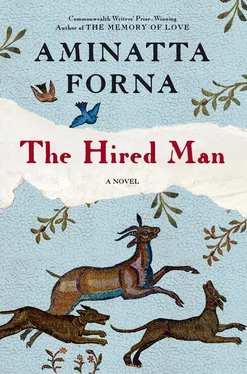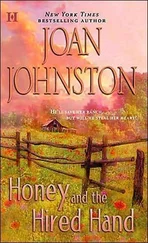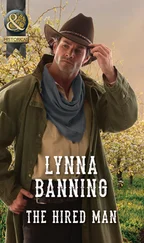‘Like brandy, home-made.’
A shopping bag stuffed full of papers. Two boxes of paperbacks, their spines broken and their pages splayed or else stuck together in a stiff wave. Cassettes. A box full of household ornaments and an old kitchen clock. A blue-glazed bowl. I picked it up and it fell in two. ‘What a shame,’ said Laura. ‘It’s rather pretty.’ She held out her hand for the pieces but I tossed them aside. I lifted the corner of the car cover. Laura came over. ‘It’s an old Cinquecento,’ she said. ‘I had one once, a long time ago. I had to sell it. I still miss it. How amazing to find one here. Mine was white, but I always really wanted a red one like this.’
‘This is like the Cinquecento, but different,’ I told her. ‘Smaller car, bigger engine. More like the Fiat 600, but this one has a 750 engine. Made here under licence. For a long time it was the only car people could buy. We called it a Fićo, because there was a cartoon and the character drove this car.’ Every year you’d see families going on holiday with them, suitcases strapped to the roof, driving over the mountains on their way to the coast. They could pull a caravan, I told Laura, if it was a small one. Hereabouts people often used them to tow farm equipment; more than once I’d seen two of them driving side by side along the road, pulling a potato digger or something else, like a pair of harnessed horses. Then the factory stopped making them and for a long time nobody wanted the cars; they carried too much of the shame of the past, the smell of poverty. Everybody wanted a Golf or a BMW. Now though I’d heard the young people in the cities were crazy for Fićos, young people with money and no memories. I said to Laura, ‘I read in the newspaper people want them again.’ I pulled the cover away entirely. The car was intact, the tyres flat, naturally; the rubber cracked. I opened the boot to look at the engine.
‘I’d forgotten the engine was in the back,’ said Laura.
I unscrewed the radiator cap. There was liquid still inside.
‘I wonder if we could get it working.’ Laura peered over my shoulder.
‘Maybe,’ I said. I replaced the cap and the cover. ‘There’s no ladder here,’ I said. I pushed the heavy wooden doors back into place and slid the metal bolt. We walked around the house back towards the road and the front door. As we passed the ladder I said, ‘Ah,’ and lifted it off the hooks by which it hung on the wall.
The gutters were thick with composted leaves in which the buddleia had rooted. Some tiles had worked their way loose or were broken, twelve by my count. A simple job. After the building boom a decade ago there hadn’t been too much work around. Some houses had been fixed up fast, but others, abandoned and left to the elements, were in a much worse state than this. People stole the roof tiles. I climbed down the ladder and told Laura I’d be back the next day. She was so grateful she didn’t even bring up the question of the price. At the door I picked up the cardboard box of junk. ‘Shall I get rid of this for you?’
‘Thank you. You’ll have to show me where the dump is.’
‘No problem.’
‘See you tomorrow,’ she said.
‘Yes, tomorrow.’ I whistled for Kos and Zeka and we walked down the road. Laura stood at the door of the blue house and watched us. I knew this without looking round, just as I knew the exact moment she ducked back inside.
At home I reviewed the contents of the box: most of it was indeed junk. Bottles and jars were always useful, I rinsed them and set them aside. At the bottom of the box I found a small number of blue and green mosaic tiles. I turned each one over in my fingers, relishing the contrasting textures: the rough edges of the clay, the slippery glass. I placed them in a line on my windowsill.
That evening I went into town for a drink, now with the prospect of several weeks of paid work to look forward to. The air was dense with the heat of unbroken storms. Zeka and Kos accompanied me. I bought a glass of wine at the bar and took a seat outside. Though it was Sunday the streets were more or less empty. People had lost the habit of walking at that hour, to exchange gossip, the men to covet the pretty wives of their neighbours, their wives to cold-shoulder those same women. People stay home, they say it’s the same everywhere. The sky was full of starlings, carving their speckled shapes in the sky. There must have been a hawk or a kestrel about and sure enough as I watched I caught a glimpse of her sweeping into the flock. It seemed impossible for her to miss and yet the starlings, thousands of them, seemed effortlessly to reshape around her.
I watched the birds for a minute or two and when I looked back at the street — there was Krešimir. Mostly he keeps himself to himself and so do I, so it had been some months since I’d seen him. Gost is neither so large nor so small that his being there was anything more than an ordinary occurrence, I mean you might see the same person twice in one day or hardly lay eyes on them in a year. It is the way of things. This is not the metropolis, but a small country town. All the same it was a coincidence, on this of all days. He’d begun to walk with a stoop, I noticed. It made him look like he was searching for coins on the ground. We’d both held onto our hair, though Krešimir wears his swept back; it reaches his collar and is run through with streaks of grey. Mine is short and black. He wore his shirt tightly buttoned to the neck and at the cuffs. He always dressed carefully, for example he’d never wear anything the least bit scuffed, stained or frayed. Krešimir was especially particular about his clothes and his family were a good bit wealthier than mine. He looked neither left nor right, but walked deliberately along the street, more slowly now than he used to. He didn’t see me. As I watched him I had a sense of déjà vu, of having been in this exact place before, starlings in the sky and Krešimir, my old adversary, in my sights.
We used to hunt for birds together, Krešimir and I: many, many years ago.
Krešimir, Anka and I: out shooting pigeons before school. Walking home once, Krešimir inexplicably furious as he so often was. It is raining and only just light. We are coming from the back fields where there wasn’t a bird in sight. After forty minutes we have returned home.
Krešimir doesn’t like it when things go badly. He has a temper, and when he has a temper on he walks very fast and his arse sticks out and sometimes I laugh, which only makes him angrier. This time Anka and I are not laughing; though we are walking at our own pace, we’ve stopped trying to keep up with him, which is not what Krešimir wants. Walking fast is his way of humiliating us because I am so much smaller than he and Anka is a girl and younger. Krešimir’s walk and his swift, unexpected movements are some of the ways he demonstrates his physical superiority. I don’t know what’s making him so angry this morning, because it’s not as though we haven’t come home empty-handed before. We’ve always enjoyed the hunts for their own sake, but not today. Something about the whole enterprise has served to enrage Krešimir.
At the corner by the bakery I peel off to go home and change my soaked clothes before school. At the corner I turn to wave, but no one is looking. Anka is running to catch up with Krešimir, wiping rain and hair from her face and calling his name. Her voice is high and bright, it carries on the wind, but her brother acts as though he is deaf.
The memory came to me with the wine and the starlings, the sight of Krešimir who can no longer walk as fast and the darkening sky and the chill of unfinished business. On a sudden whim I stood up and called his name and watched him turn unhurriedly, with a deliberate lack of surprise. Krešimir never likes to be caught out and has trained his responses accordingly. I called for him to join me for a drink, though the truth is I didn’t think for a moment he would say yes, and yet he came over, marking a semicircle around the dogs. Kos caught a scent of him and lifted a lip. ‘She’s just smiling at you,’ I told Krešimir. Krešimir had a dislike of dogs, of all animals actually — it was one of the reasons he hunted.
Читать дальше












